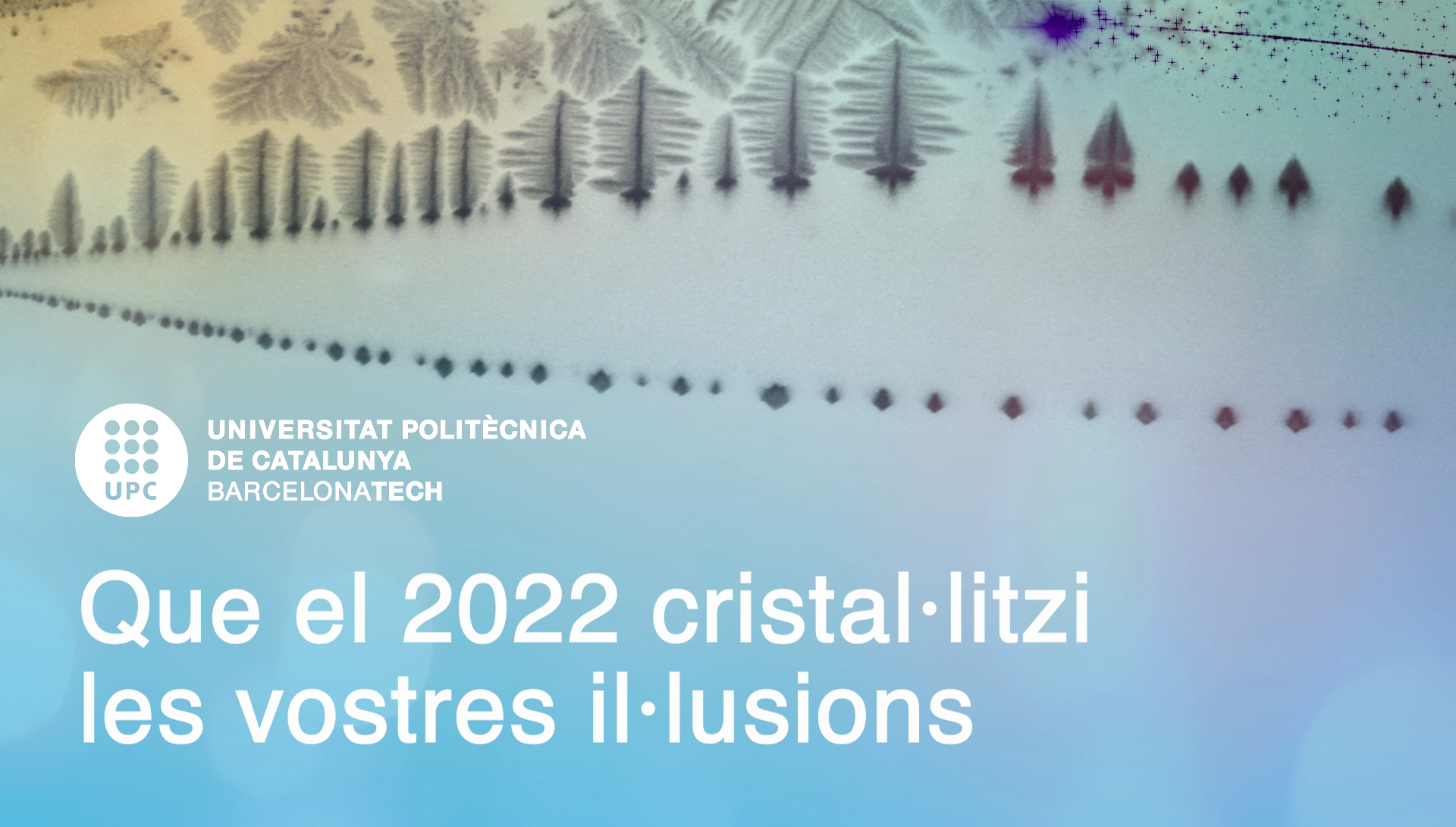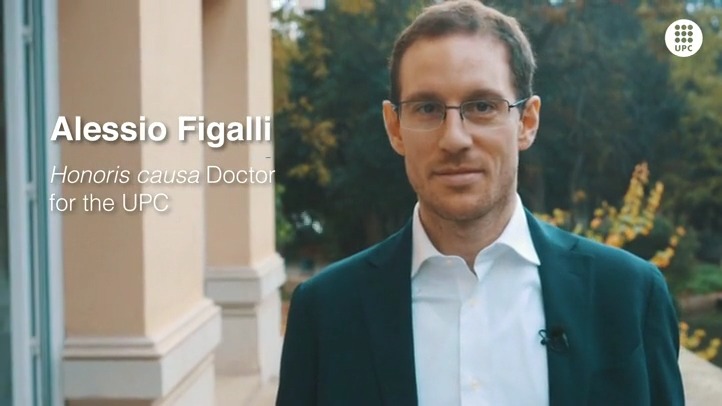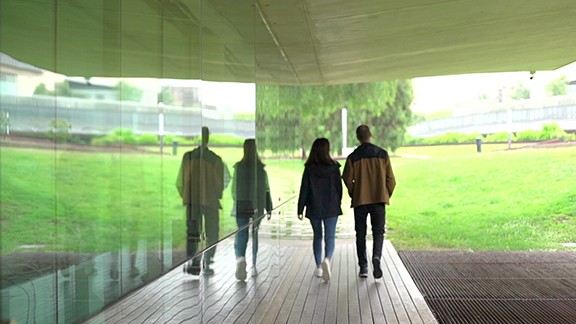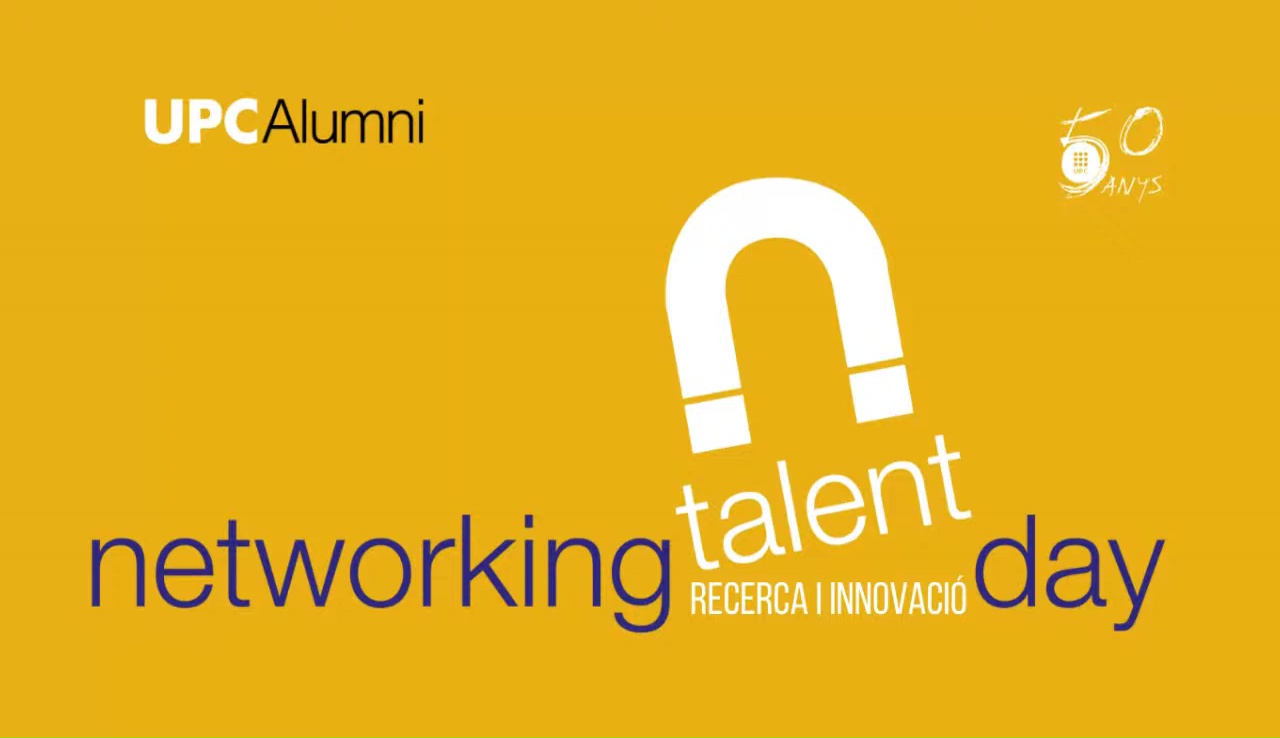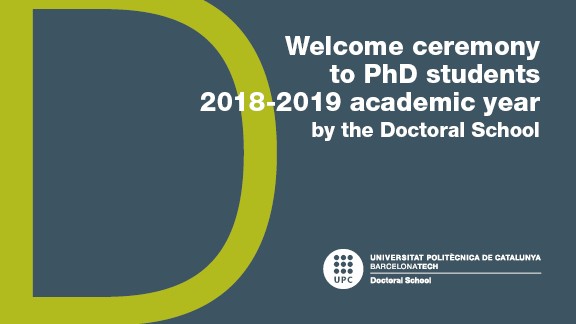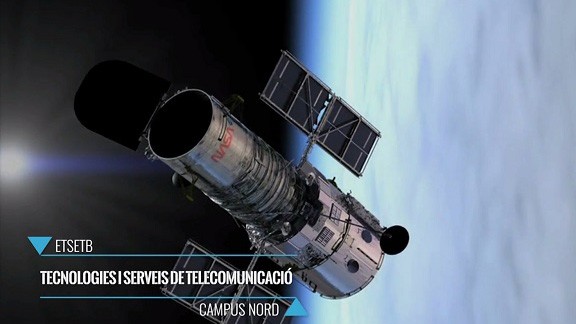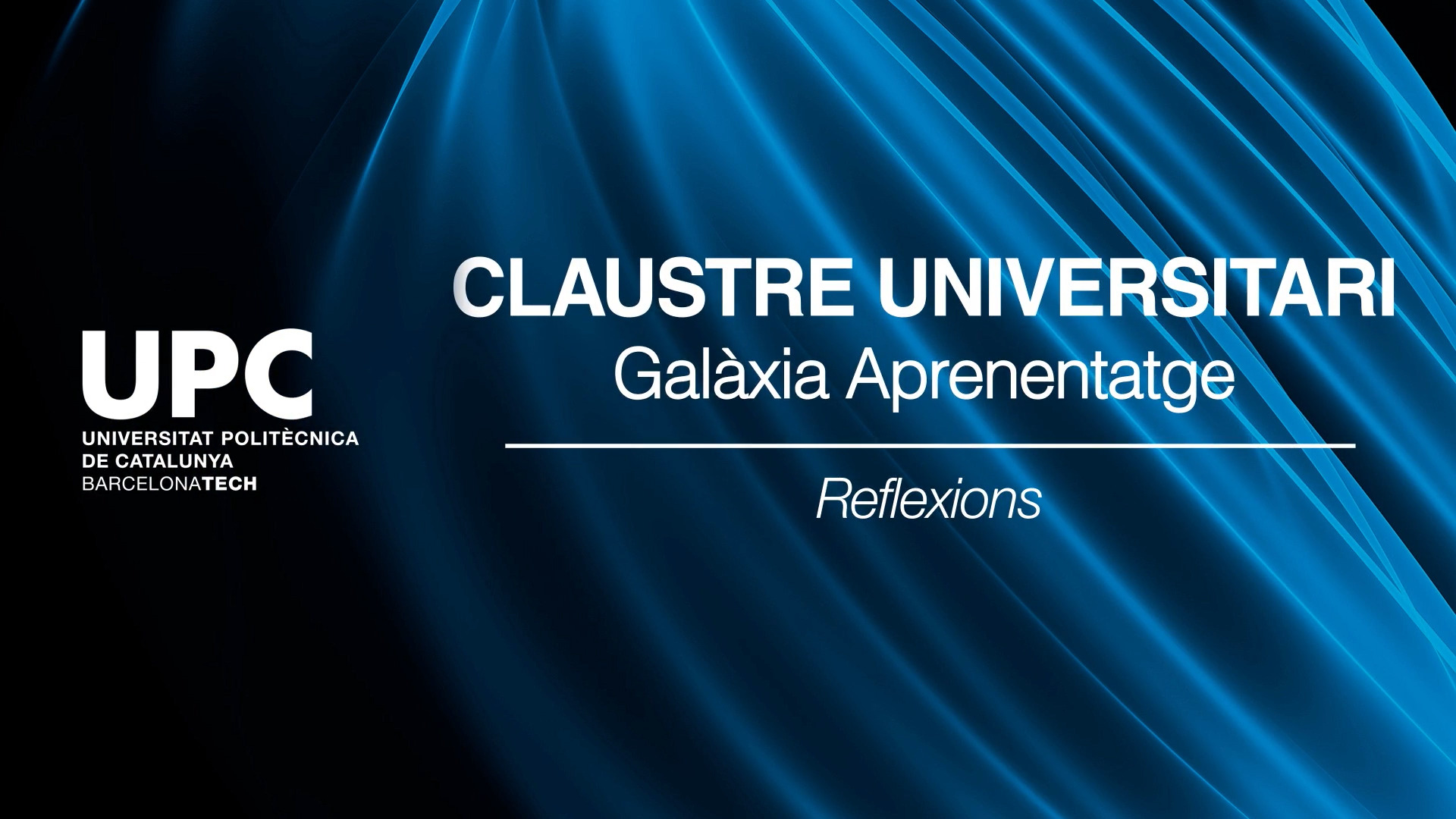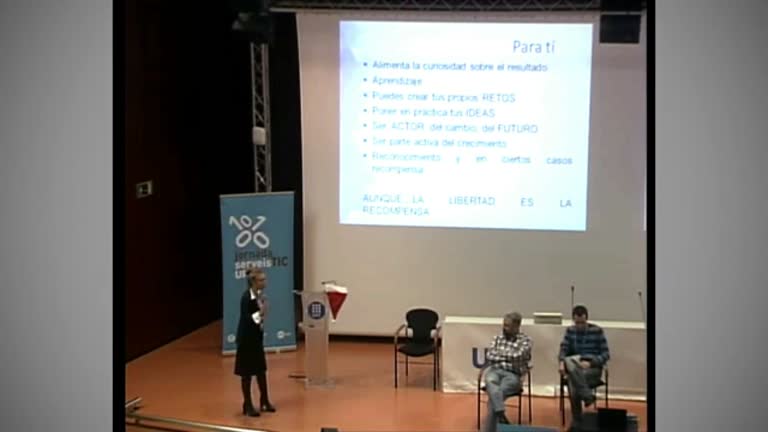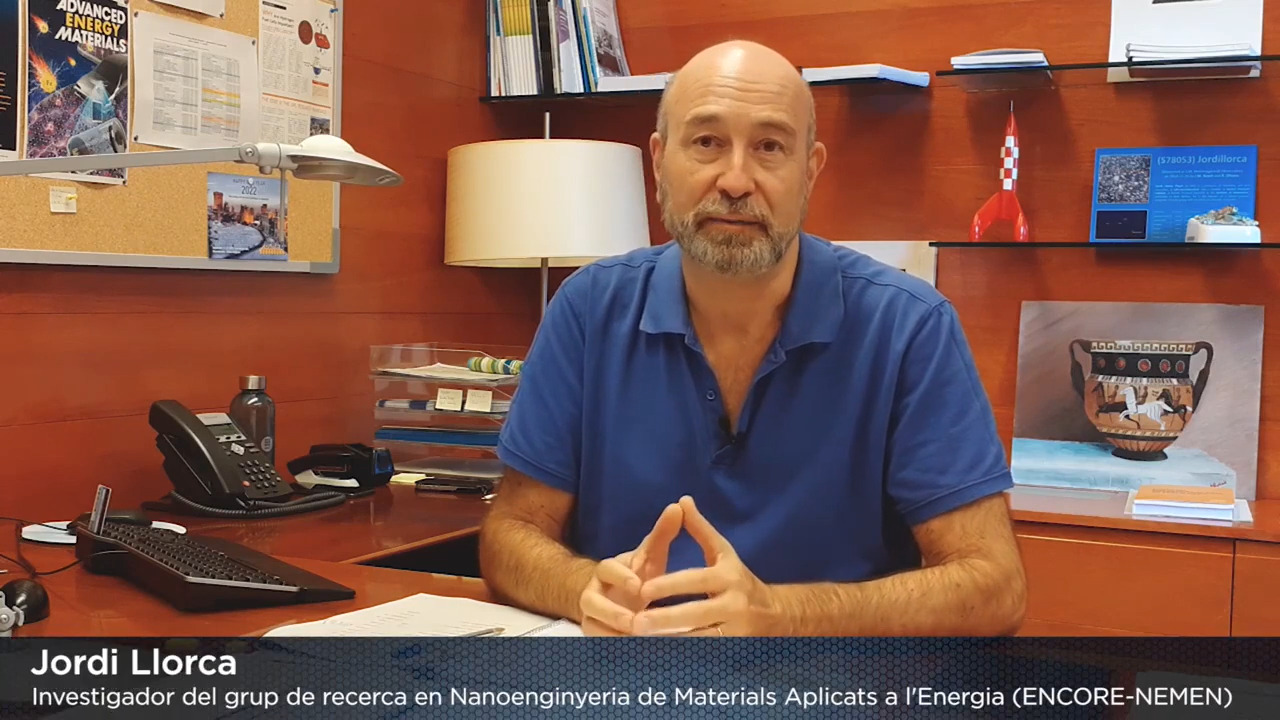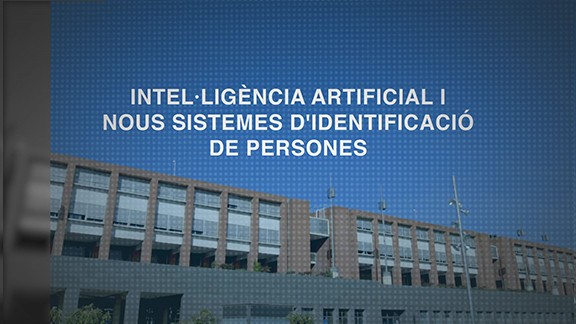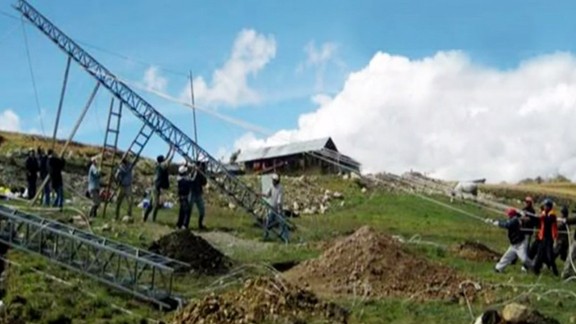Total de resultats de la cerca: 2925
Resultats de la cerca
Alessio Figalli, doctor 'honoris causa' per la UPC
Accés obert
22 de nov. 2019
Alessio Figalli, doctor 'honoris causa' per la UPC, explica en aquesta entrevista el paper de les Matemàtiques en el desenvolupament de la tecnologia.
El matemàtic italià Alessio Figalli, professor de l’ETH Zurich i un dels matemàtics internacionals més rellevants de l’actualitat, ha estat investit, el 22 de novembre a Barcelona, doctor ‘honoris causa’ per la UPC, a proposta de la Facultat de Matemàtiques i Estadística (FME). En aquesta entrevista, el catedràtic explica el paper de les Matemàtiques en el desenvolupament de la tecnologia.
El matemàtic italià Alessio Figalli, professor de l’ETH Zurich i un dels matemàtics internacionals més rellevants de l’actualitat, ha estat investit, el 22 de novembre a Barcelona, doctor ‘honoris causa’ per la UPC, a proposta de la Facultat de Matemàtiques i Estadística (FME). En aquesta entrevista, el catedràtic explica el paper de les Matemàtiques en el desenvolupament de la tecnologia.
La experiencia de los estudiantes y titulados del máster
Accés obert
22 d’oct. 2019
¿Qué conocimientos han adquirido los titulados del máster en Ciencia y Tecnología de la Sostenibilidad de la UPC? ¿Qué perspectivas o softwares nuevos se aprenden? ¿Qué oportunidades laborales proporciona? Conoce la experiencia de los estudiantes y titulados del máster.
10a edició NTD - Networking Talent Day. Recerca i Innovació.
Accés obert
6 de jul. 2021
Dimarts 6 de juliol, UPC Alumni va organitzar la 10a edició del Networking Talent Day - eNTD, dedicat a la Recerca i la Innovació.
L'NTD representa una oportunitat única per a què empreses i institucions puguin contactar amb professionals d'alta qualificació, tant si estan cursant un màster, fent el doctorat o si ja han finalitzat qualsevol de les dues opcions a la UPC. A més, l'esdeveniment afavoreix la transferència del coneixement i els resultats de la recerca a les empreses i institucions.
L'edició d'enguany es va realitzar en línia per facilitar la participació del màxim nombre de persones.
L'NTD representa una oportunitat única per a què empreses i institucions puguin contactar amb professionals d'alta qualificació, tant si estan cursant un màster, fent el doctorat o si ja han finalitzat qualsevol de les dues opcions a la UPC. A més, l'esdeveniment afavoreix la transferència del coneixement i els resultats de la recerca a les empreses i institucions.
L'edició d'enguany es va realitzar en línia per facilitar la participació del màxim nombre de persones.
Welcome ceremony to PhD Students 2018-2019 academy year
Accés obert
12 de nov. 2018
El passat 9 de novembre va tenir lloc a l'Auditori de l'edifici Vèrtex de la UPC, la sessió de benvinguda als nous estudiants de doctorat, l'acte ha estat també el marc del lliurament dels premis extraordinaris de doctorat de la promoció 2015-2016.
Els premis extraordinaris de doctorat s’atorguen entre aquelles persones que han obtingut el grau de doctor amb una qualificació de cum laude en el curs acadèmic 2015-2016 en qualsevol programa de doctorat de la Universitat Politècnica de Catalunya (UPC), distribuïts entre els cinc àmbits de coneixement que s’estableixen a la convocatòria: arquitectura, urbanisme i edificació; ciències; enginyeria civil; enginyeria de les TIC, i enginyeria industrial. Un total de 39 doctors han rebut aquest reconeixement.
Els premis extraordinaris de doctorat s’atorguen entre aquelles persones que han obtingut el grau de doctor amb una qualificació de cum laude en el curs acadèmic 2015-2016 en qualsevol programa de doctorat de la Universitat Politècnica de Catalunya (UPC), distribuïts entre els cinc àmbits de coneixement que s’estableixen a la convocatòria: arquitectura, urbanisme i edificació; ciències; enginyeria civil; enginyeria de les TIC, i enginyeria industrial. Un total de 39 doctors han rebut aquest reconeixement.
Escola Tècnica Superior d'Enginyeria de Telecomunicació de Barcelona (ETSETB)
Accés obert
10 de gen. 2017
Les comunicacions són avui en dia absolutament necessàries en tots els entorns
i escenaris. El món de la indústria i l’empresa, i la societat en general,
requereixen especialistes en tecnologies com la fibra òptica, les
comunicacions mòbils, l’ADSL o el GPS per dur a terme els seus projectes,
projectes amb els quals les ciutats es fan intel·ligents amb la implantació de
xarxes de sensors ( _smart cities_ ) i en què l’ús estès de xarxes de
comunicació i l’anomenada _Internet de les coses_ ( _internet of things_ )
evidencien la necessitat d’experts en tecnologies que respectin la privacitat
i la seguretat de les nostres dades.
Aquests professionals també són clau per al sector audiovisual —en el disseny
de sistemes avançats com les tecnologies 3D d’imatge i àudio per al consum
multimèdia (televisió, espectacles musicals o cinema)— o per a sectors tan
rellevants com la sanitat o la indústria de l’automoció, el transport o
l’energia, sectors on es desenvolupen dispositius i instrumentació electrònica
que permeten obtenir de manera precisa i fi able les dades necessàries per
monitorar l’evolució d’un malalt, per exemple.
A l'[Escola Tècnica Superior d'Enginyeria de Telecomunicació de Barcelona
(ETSETB) ](http://etsetb.upc.edu) adquiriràs una
sòlida formació en l’àmbit de les tecnologies de la informació i la
comunicació (TIC) que et permetrà ser un professional versàtil amb facilitat
per canviar d’entorn de treball i adaptar-te als nous reptes de futur,
assumint un ampli ventall de tasques tècniques i de direcció.
i escenaris. El món de la indústria i l’empresa, i la societat en general,
requereixen especialistes en tecnologies com la fibra òptica, les
comunicacions mòbils, l’ADSL o el GPS per dur a terme els seus projectes,
projectes amb els quals les ciutats es fan intel·ligents amb la implantació de
xarxes de sensors ( _smart cities_ ) i en què l’ús estès de xarxes de
comunicació i l’anomenada _Internet de les coses_ ( _internet of things_ )
evidencien la necessitat d’experts en tecnologies que respectin la privacitat
i la seguretat de les nostres dades.
Aquests professionals també són clau per al sector audiovisual —en el disseny
de sistemes avançats com les tecnologies 3D d’imatge i àudio per al consum
multimèdia (televisió, espectacles musicals o cinema)— o per a sectors tan
rellevants com la sanitat o la indústria de l’automoció, el transport o
l’energia, sectors on es desenvolupen dispositius i instrumentació electrònica
que permeten obtenir de manera precisa i fi able les dades necessàries per
monitorar l’evolució d’un malalt, per exemple.
A l'[Escola Tècnica Superior d'Enginyeria de Telecomunicació de Barcelona
(ETSETB) ](http://etsetb.upc.edu) adquiriràs una
sòlida formació en l’àmbit de les tecnologies de la informació i la
comunicació (TIC) que et permetrà ser un professional versàtil amb facilitat
per canviar d’entorn de treball i adaptar-te als nous reptes de futur,
assumint un ampli ventall de tasques tècniques i de direcció.
Marc Alier: Reflexions
Accés obert
29 de set. 2022
Marc Alier Forment, professor de la Facultat d'Informàtica de Barcelona (FIB) i del Departament d'Enginyeria de Serveis i Sistemes d'Informació, i sotsdirector de l'Institut de Ciències de l'Educació (ICE) de la UPC, explica una experiència d'innovació docent.
La reflexió i el debat sobre l’experiència d’aprenentatge a la Universitat i les línies estratègiques per a un nou model docent centren el Claustre Universitari de la UPC, els dies 4 i 7 d’octubre.
La reflexió i el debat sobre l’experiència d’aprenentatge a la Universitat i les línies estratègiques per a un nou model docent centren el Claustre Universitari de la UPC, els dies 4 i 7 d’octubre.
Transformem idees en realitat
Accés obert
3 de des. 2014
El personal TIC de la UPC tenim l'experiència i el poder de crear una realitat a partir d'una idea. Dedicarem la jornada TIC 2014 a amplificar els mecanismes perquè això sigui possible (intra-empreneduria) per tal de transformar idees en realitat de valor afegit per a la UPC (innovació).
Catalitzadors de pal·ladi i platí per eliminar les emissions de metà
Accés obert
18 de gen. 2023
Investigadors de la UPC, de la Universitat d’Udine (Itàlia) i del Sincrotró ALBA han descobert un catalitzador de pal·ladi i platí, el primer que permet eliminar les emissions de metà derivades del transport i altres activitats humanes, a fi de reduir l'escalfament global.
Ho explica Jordi Llorca, investigador del Departament d’Enginyeria Química i de l’Institut de Tècniques Energètiques de la UPC, així com del grup de recerca en Nanoenginyeria de Materials Aplicats a l'Energia (ENCORE-NEMEN), i vinculat a l’Escola d’Enginyeria de Barcelona Est (EEBE).
Ho explica Jordi Llorca, investigador del Departament d’Enginyeria Química i de l’Institut de Tècniques Energètiques de la UPC, així com del grup de recerca en Nanoenginyeria de Materials Aplicats a l'Energia (ENCORE-NEMEN), i vinculat a l’Escola d’Enginyeria de Barcelona Est (EEBE).
Intel·ligència Artificial i nous sistemes d’identificació de persones
Accés obert
14 de febr. 2020
Els investigadors de l’IDEAI-UPC Elisa Sayrol i Ramon Morros expliquen què és la biometria, una tècnica que permet identificar persones a través de mesures fisiològiques –per exemple, la veu, la cara o les empremtes digitals– o conductuals, com ara la forma de caminar o de teclejar. En el vídeo, s’analitzen les diverses aplicacions que té –per al control d’accés físic a edificis, la videovigilància o l’anàlisi forense– i els riscos que pot comportar.
División de Control del IOC
Accés obert
11 d’abr. 2014
El Instituto de Organización y Control de Sistemas Industriales (IOC) es un instituto universitario de búsqueda científica y técnica la Universitat Politècnica de Catalunya• BarcelonaTech. Las líneas de búsqueda del IOC incluyen ámbitos interdisciplinarios como la automática, la robótica y la organización industrial, con una especial orientación el análisis, el diseño, la dirección y el control de los sistemas logísticos y de producción de bienes y de servicios, como también a los métodos y a las técnicas adecuadas para la resolución de estos problemas en estos ámbitos.
En este vídeo se presenta la actividad de la división de Control, orientada a la búsqueda y el desarrollo de técnicas de modelización, simulación y control de procesos, incluyendo la aplicación en proyectos industriales concretos y los procedimientos necesarios para su implantación.
En este vídeo se presenta la actividad de la división de Control, orientada a la búsqueda y el desarrollo de técnicas de modelización, simulación y control de procesos, incluyendo la aplicación en proyectos industriales concretos y los procedimientos necesarios para su implantación.
División de Logística del IOC
Accés obert
11 d’abr. 2014
El Instituto de Organización y Control de Sistemas Industriales (IOC) es un instituto universitario de búsqueda científica y técnica la Universitat Politècnica de Catalunya• BarcelonaTech. Las líneas de búsqueda del IOC incluyen ámbitos interdisciplinarios como la automática, la robótica y la organización industrial, con una especial orientación el análisis, el diseño, la dirección y el control de los sistemas logísticos y de producción de bienes y de servicios, como también a los métodos y a las técnicas adecuadas para la resolución de estos problemas en estos ámbitos.
En este vídeo se presenta la división de Ingeniería de Organización y Logística orientada a la búsqueda y la transferencia tecnológica en el ámbito del diseño y la gestión de la cadena de aprovisionamiento, es decir, de sistemas productivos y logísticos de bienes y de servicios, así como también las técnicas necesarias para la resolución eficiente de los problemas correspondientes. La división lleva a cabo el asesoramiento y la elaboración de estudios, modelos y software.
En este vídeo se presenta la división de Ingeniería de Organización y Logística orientada a la búsqueda y la transferencia tecnológica en el ámbito del diseño y la gestión de la cadena de aprovisionamiento, es decir, de sistemas productivos y logísticos de bienes y de servicios, así como también las técnicas necesarias para la resolución eficiente de los problemas correspondientes. La división lleva a cabo el asesoramiento y la elaboración de estudios, modelos y software.


